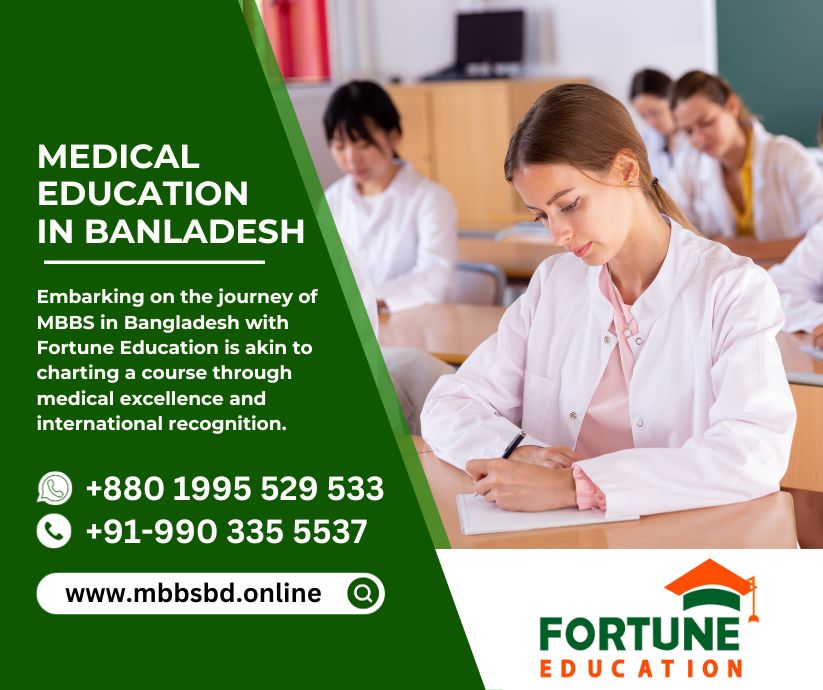Nepal Medical Council NMC
The Nepal Medical Council (NMC) is a key regulatory body in Nepal responsible for ensuring the quality of medical education and practice in the country. Here are some of the primary functions and aspects of the Nepal Medical Council:
Nepal Medical Council
Registration of Medical Practitioners: One of the main functions of NMC is to maintain a register of qualified medical practitioners. Doctors must be registered with the NMC to legally practice medicine in Nepal. This includes both Nepalese nationals and foreign medical graduates who wish to practice in Nepal.
Accreditation and Recognition: NMC accredits medical colleges and universities in Nepal. It ensures that these institutions meet the required standards in medical education. This accreditation is crucial for maintaining the quality and standard of medical education in the country.
Standardization of Medical Education: The Council sets guidelines and standards for medical education, including curriculum, faculty qualifications, infrastructure, and other educational aspects. It regularly inspects medical colleges to ensure compliance with these standards.
Licensing Examinations: NMC conducts licensing examinations for medical graduates. Passing this examination is a prerequisite for obtaining a license to practice medicine in Nepal.
Continuing Medical Education (CME): The Council also emphasizes the importance of Continuing Medical Education for practicing physicians. This is to ensure that medical professionals stay updated with the latest developments in medical science and practice.
Ethical Oversight: NMC is responsible for upholding medical ethics. It formulates codes of ethics for medical practitioners and takes action in cases of professional misconduct.
International Collaboration: The Council collaborates with international medical boards and councils to ensure that its practices and standards are in line with global norms.
Public Health Initiatives: NMC may also advise the government on public health policies and initiatives, contributing to the overall healthcare system in Nepal.
Handling Complaints and Disciplinary Actions: NMC addresses complaints against medical practitioners and can take disciplinary actions if necessary, which is vital for maintaining public trust in the healthcare system.
Guidance for Foreign Medical Graduates: The Council provides guidelines for foreign medical graduates who wish to practice in Nepal, including information on licensing exams and registration procedures.
For specific details regarding registration, licensing exams, accreditation of medical institutions, or any other information, individuals should refer to the official website or contact the Nepal Medical Council directly.
MBBS in Nepal
Studying MBBS (Bachelor of Medicine and Bachelor of Surgery) in Nepal is an attractive option for many students, particularly those from neighboring countries like India, due to its quality education, affordable fees compared to many western countries, and cultural similarities. Here are some key points about pursuing MBBS in Nepal:
Quality of Education: Medical colleges in Nepal offer a high standard of education, with a curriculum that is often compared to those in other countries in South Asia. Many colleges are recognized by international medical boards.
Duration of the Course: The MBBS program in Nepal typically spans five and a half years, which includes a one-year internship period that is essential for practical training.
Medium of Instruction: The medium of instruction in most medical colleges in Nepal is English, which makes it easier for international students to adapt.
Eligibility Criteria: Applicants generally need to have completed 10+2 or equivalent education with Physics, Chemistry, Biology, and English as main subjects and have secured a minimum percentage (usually around 50%) in these subjects. Additionally, they must qualify in medical entrance exams conducted by respective universities or authorized bodies.
Entrance Exams: Admission to MBBS programs in Nepal usually requires passing an entrance exam. Some universities conduct their own exams, while others accept scores from standardized exams like NEET (National Eligibility cum Entrance Test) for Indian students.
Clinical Exposure: Nepal offers diverse clinical exposure due to its varied geographic and demographic conditions. This exposure is beneficial for medical students as they get to deal with a wide range of health issues.
Affordability: Compared to many western countries, the cost of studying MBBS in Nepal is relatively affordable, although it can be higher than in government colleges in countries like India.
International Recognition: Graduates from medical colleges in Nepal are recognized in many countries around the world. However, students should check the recognition and accreditation of the college they are interested in, especially if they plan to practice in other countries.
Cultural Experience: Nepal’s rich cultural heritage provides an enriching experience for international students. The country’s hospitality and diverse culture make it an attractive destination for students.
Postgraduate Opportunities: After completing MBBS, there are opportunities for further specialization in Nepal or abroad. Students can pursue MD/MS in various specialties.
When considering studying MBBS in Nepal, it’s important to research specific colleges, their accreditation status, fee structure, hostel facilities, and other relevant factors. Additionally, the political and economic stability of the country, along with the safety and living conditions, are also important considerations for international students.
MBBS Admission Test in Nepal
Admission to the MBBS program in Nepal typically involves an entrance test. This test is a crucial component of the selection process and is designed to assess the knowledge, aptitude, and suitability of candidates for a career in medicine. Here are the key aspects of the MBBS admission test in Nepal:
Conducting Bodies: The entrance tests for MBBS admissions in Nepal are usually conducted by individual universities or a consortium of medical colleges. Notable among them are Tribhuvan University, Kathmandu University, and the Institute of Medicine (IOM).
Eligibility: Candidates must typically have completed 10+2 or equivalent education with Physics, Chemistry, Biology, and English and should have obtained a minimum percentage (usually around 50% or higher) in their examinations.
Test Format and Subjects: The entrance test usually consists of multiple-choice questions (MCQs) covering subjects like Biology, Chemistry, Physics, and sometimes, English and General Knowledge. The focus is mainly on the science subjects, reflecting the curriculum of the MBBS program.
Preparation: Candidates often prepare for these tests by reviewing their 10+2 level science subjects. Many also enroll in coaching centers specifically designed to prepare students for medical entrance exams.
Application Process: Interested candidates must apply to the respective universities or colleges, often through an online application system. They need to fill out personal and educational details and submit the required documents.
Examination Centers: The tests are usually held at various centers across Nepal. For international candidates, arrangements may vary based on the institution’s policies.
Results and Selection: Post the entrance test, the results are declared, and candidates are selected based on their performance
MBBS Admission Policy in Nepal
The admission policy for MBBS programs in Nepal is governed by a set of guidelines and criteria that are designed to select students based on merit, competence, and aptitude for medical education. Here’s an overview of the typical admission policy for MBBS in Nepal:
Academic Requirements:
Candidates must have completed their higher secondary education (10+2) or equivalent, usually with Physics, Chemistry, Biology, and English as major subjects.
A minimum aggregate score is required, often around 50% or more, particularly in science subjects.
Entrance Examination:
Admission to MBBS programs in Nepal largely depends on the scores obtained in an entrance examination.
These exams are usually conducted by individual universities or a centralized body. For example, the Institute of Medicine (IOM) under
Tribhuvan University, Kathmandu University, and the BP Koirala Institute of Health Sciences conduct their own exams.
The exam typically tests knowledge in subjects like Biology, Chemistry, Physics, and sometimes English and General Knowledge.
Eligibility for International Students:
International students, including those from SAARC countries, often have to meet additional criteria or take specific entrance exams (like NEET for Indian students).
Some seats in medical colleges are reserved for foreign nationals.
Age Criteria:
Applicants are generally required to be a minimum age, often 17 years, at the time of admission.
Application Process:
Candidates must fill out and submit application forms, usually available online or at the college’s admissions office.
Relevant documents, such as academic transcripts, certificates, and identification, need to be submitted along with the application.
Selection Process:
Selection is primarily based on entrance exam scores, although some colleges may also consider academic performance in secondary education.
Interview and Medical Check-Up:
Some colleges may conduct interviews and/or medical fitness tests as part of the selection process.
Quotas and Reservations:
There may be quotas or reserved seats for various groups like underprivileged communities, rural candidates, international students, etc.
Registration with Nepal Medical Council (NMC):
After admission, students must register with the NMC.
Adherence to Regulations:
Colleges and students must adhere to the regulations set by the Nepal Medical Council and the affiliated university.
This policy can vary slightly from college to college and year to year. Therefore, it’s important for prospective students to check the latest admission guidelines from the respective medical colleges or the official university websites for the most accurate and up-to-date information.
Top Medical Colleges in Nepal
As of my last update in April 2023, several medical colleges in Nepal are recognized for their quality of education, infrastructure, and healthcare training. Here’s a list of some of the top medical colleges in Nepal:
Institute of Medicine, Tribhuvan University (IOM): Located in Kathmandu, this is one of the most prestigious medical colleges in Nepal. It offers a range of undergraduate and postgraduate programs in medicine and healthcare.
B.P. Koirala Institute of Health Sciences (BPKIHS): Situated in Dharan, BPKIHS is renowned for its integrated approach to healthcare education and services. It offers various medical and allied health science courses.
Kathmandu University School of Medical Sciences (KUSMS): A part of Kathmandu University, this school is located in Dhulikhel and is known for its comprehensive MBBS program and postgraduate medical education.
Patan Academy of Health Sciences (PAHS): This Lalitpur-based institution focuses on serving the rural and underserved populations of Nepal and offers medical education that emphasizes community health.
Manipal College of Medical Sciences (MCOMS): Located in Pokhara, MCOMS is part of the Manipal Education and Medical Group and is affiliated with Kathmandu University. It’s popular among international students.
Nepal Medical College (NMC): Situated in Kathmandu, NMC is affiliated with Kathmandu University and offers MBBS and postgraduate courses in various specialties.
KIST Medical College: Located in Lalitpur and affiliated with Tribhuvan University, KIST offers MBBS and other healthcare courses, with a focus on research and community health.
Chitwan Medical College (CMC): This Bharatpur-based college, affiliated with Tribhuvan University, offers MBBS and BDS programs, along with postgraduate medical education.
Nepalgunj Medical College: Located in Nepalgunj and affiliated with Kathmandu University, this college offers MBBS and postgraduate medical courses.
College of Medical Sciences, Bharatpur: Affiliated with Kathmandu University, it provides MBBS and BDS programs, as well as postgraduate courses.
These colleges are known for their academic excellence, state-of-the-art facilities, and significant contributions to healthcare in Nepal. Prospective students should visit the individual college websites or contact them directly for the most current information regarding admissions, programs, and eligibility criteria.
Study MBBS in Bangladesh
Studying MBBS in Bangladesh has become an increasingly popular option for students, especially from neighboring countries like India, due to its affordability, quality of education, and cultural similarities. Here are some key points to consider if you’re interested in pursuing MBBS in Bangladesh:
Quality of Education: Medical colleges in Bangladesh offer a high standard of education, with curriculums often similar to those in India (following the Medical Council of India’s guidelines), making it a viable option for Indian students.
Duration of the Course: The duration of the MBBS course in Bangladesh is typically 5 years, followed by a compulsory internship of 1 year.
Recognition: Many medical colleges in Bangladesh are recognized by major international bodies like the World Health Organization (WHO) and the Medical Council of India (MCI), which makes the degree globally accepted.
Medium of Instruction: The medium of instruction in most medical colleges in Bangladesh is English, which is beneficial for international students.
Eligibility Criteria: The eligibility criteria for admission to MBBS programs in Bangladesh usually include a high school diploma with a good score in sciences, particularly in Biology. Some colleges might require eligibility tests or interviews.
Affordability: Compared to many Western countries and even private medical colleges in India, Bangladesh offers a more affordable option for medical education.
Clinical Exposure: Students get good clinical exposure due to a high population density and a wide range of diseases, which is crucial for medical training.
Cultural and Geographical Proximity: For students from South Asia, especially India, Bangladesh offers a culturally and geographically proximate environment, making adaptation easier.
Admission Process: Admissions are generally based on academic performance and sometimes entrance examinations. It’s important to check the specific requirements of each college.
Accommodation and Living: Most colleges provide hostel facilities. The cost of living in Bangladesh is relatively low, which can be an advantage for international students.
Post Graduation Opportunities: After completing MBBS in Bangladesh, students can pursue higher studies or practice medicine in various countries, subject to clearing the respective medical licensing examinations of those countries.
When considering studying MBBS in Bangladesh, it is important to research and choose colleges that are recognized by international medical boards. Prospective students should also be aware of the accreditation status, course curriculum, fee structure, and the overall reputation of the college. Additionally, understanding the legal requirements for international students, such as visa regulations, is also crucial.
Fortune Education
Fortune Education is a Pioneer & Leading Education Consultant
Fortune Education, established as an education consultant, plays a significant role in guiding students, especially those aspiring to pursue higher education in the medical and health sciences fields. As a pioneer and leading consultant in its domain, Fortune Education offers a range of services:
Career Counseling: They provide personalized counseling to students, helping them to select the right career path based on their interests, academic performance, and future goals.
University Selection: Fortune Education assists students in choosing the right university or college, particularly for medical and dental courses, considering factors like accreditation, academic excellence, and budget.
Admission Guidance: They guide students through the entire admission process, from application form filling, submission, to understanding the specific requirements of each institution.
Documentation Assistance: This includes help with preparing and organizing necessary documents like academic transcripts, letters of recommendation, statement of purpose, etc.
Entrance Exam Preparation: Fortune Education may provide resources or guidance for preparing for entrance exams required for admission to medical colleges, such as NEET or other relevant tests.
Visa Processing: They offer assistance in the visa application process, ensuring students meet all the requirements for a student visa.
Accommodation and Travel Arrangements: Assistance in finding suitable accommodation and making travel arrangements for students going abroad for studies.
Pre-departure Briefing: Providing students with essential information about their destination country, culture, lifestyle, and what to expect in their new environment.
Post-Arrival Support: Some consultants continue to offer support even after the student has reached their study destination, helping them settle in and addressing any initial challenges.
Networking Opportunities: They may facilitate connections with alumni or current students of the institutions to give prospective students a better insight.
It’s important to note that while education consultants like Fortune Education can provide valuable assistance, students should also conduct their own research and due diligence when planning their higher education, especially in fields as critical as medicine and healthcare. Additionally, the specific services and quality of support provided by such consultants can vary, so it’s advisable to seek feedback from past clients or check for reviews and accreditation of the consultancy.
Fortune Offers Direct MBBS Admission
Fortune Offers Direct MBBS Admission in Army Medical Colleges in Bangladesh
Fortune Education, as an education consultancy, appears to offer services that include facilitating direct MBBS admissions in Army Medical Colleges in Bangladesh. This type of service can be particularly appealing for students seeking a straightforward and guided admission process into specialized institutions like Army Medical Colleges. Here’s how such a service typically works:
Direct Admission Support: Education consultancies like Fortune Education often have collaborations or agreements with educational institutions, which might enable them to offer direct admission services. This can simplify the admission process for students.
Guidance on Eligibility and Requirements: The consultancy would typically provide detailed information about the eligibility criteria, academic qualifications required, and any other specific requirements for admission to Army Medical Colleges.
Assistance with Documentation: They would assist in preparing and organizing necessary documents like academic transcripts, application forms, personal statements, etc., required for the admission process.
Navigating the Admission Process: This includes guiding students through each step of the admission process, ensuring that they meet all deadlines and requirements.
Communication with the College: The consultancy would likely handle most communications with the Army Medical Colleges on behalf of the student, including submission of applications and any follow-up correspondence.
Preparation for Entrance Exams: If the Army Medical Colleges require entrance exams, the consultancy might provide resources or coaching to help students prepare for these exams.
Visa and Travel Assistance: For international students, they would provide assistance with obtaining a student visa and making travel arrangements to Bangladesh.
Orientation and Briefing: Providing pre-departure briefings to students about life in Bangladesh, the academic environment of Army Medical Colleges, and other relevant information.
It is important to note that while such services can be very helpful, students and parents should conduct thorough research and due diligence before engaging with any educational consultancy. This includes verifying the consultancy’s credibility, understanding the terms of service, and ensuring transparency in the admission process. Additionally, it is advisable to directly contact the Army Medical Colleges in Bangladesh for their input or confirmation regarding any such direct admission services.



